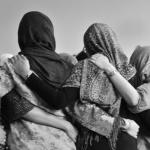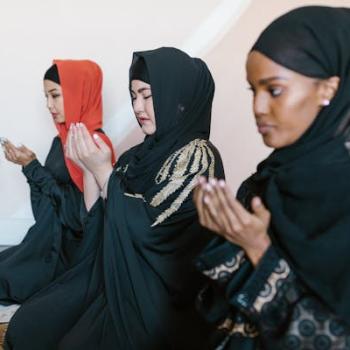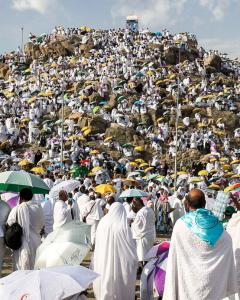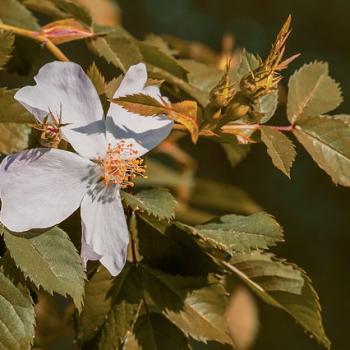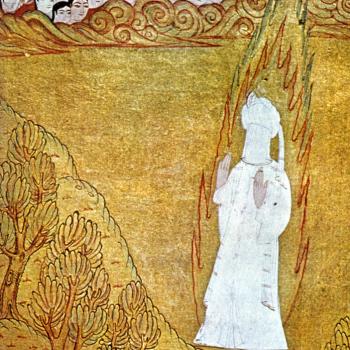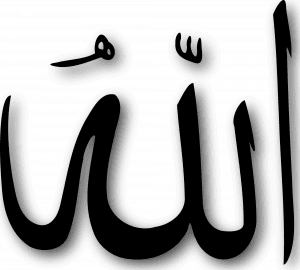
In a previous article we mentioned how the Prophet (PUH) had a deep capacity for Munajaat, that is the secret discourse between lovers, which involves openly pouring our hearts out to our Rabb (our Sustainer, our Lord, our inmost Self), with openness, vulnerability, and longing for nearness to Him. There is an extensive and rich recorded tradition of the Prophet’s prayers that can help us understand and guide us to what is possible for us in our relationship with the Divine. The Prophet lived his life in a state of remembrance, he made his daily, mundane living an occasion for a joyful, loving relationship with his Lord. He remembered his Rabb waking up, sleeping, dressing, walking, riding, standing up, sitting down, entering and exiting doorways, eating, drinking, making love, bathing, praying, and all other aspects of his daily living. Muhammad’s Rabb was his constant companion, Muhammad felt His presence with him at every moment, protecting him, guiding him, forgiving him, seeing him, hearing him, and loving him.
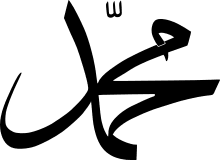
Going to sleep for him was a regular occasion for lovingly calling out to his Rabb, seeking support and protection, asking for forgiveness, giving thanks, surrendering his being to Allah’s care, and acknowledging the sovereignty of his Rabb:
“O, my God, the stars have come out and the eyes have come to rest. And You are the ever-living, ever-lasting One who is not overtaken by slumber or sleep. O Living One, O Everlasting One, make my night calm and let my eyes sleep.”
He would awaken in loving gratitude for being alive, nourished and sustained by Al Hayy, Al Qayyum:
“Praise is to God who returned my soul to me and put strength in my body and permitted me to remember Him. Allah is the Greatest, the Greatest.”
At the end of each year, he would seek forgiveness from his Rabb for whatever he’d done over the year, acknowledging his Lord’s infinite mercy, generosity and benevolence:
“O my God, I seek Your forgiveness from whatever I have done throughout this past year that You have forbidden but from which I did not repent. Forgive me what I have done that does not please You and I have forgotten but You did not. You showed Your benevolence toward me though You are able to punish me. Forgive me what you have invited me to repent after my insolence in disobeying You. And I ask You to accept whatever I have done that pleases You. O Generous and Noble One, do not stop my hope in You.”
Every new year, he would call out to his Rabb, acknowledging His timeless, eternal existence and his utter dependence upon Him, and asking for protection, nearness, and intimacy:
“O my God, You are the Eternal, Ancient, First One. Upon Your great benefits our existence depends. A new year approaches and we ask Your protection throughout it from Satan and his friends and hosts. We ask Your aid over our commanding selves. We ask You to occupy us with what will bring us closer to You, O You who are Majestic and Noble.”
During his prayers he would totally submit his being to his Lord:
“O my God for You I bow down, and in You I place my faith, and unto You I submit. To You have bowed my hearing, my sight, my brain, my bones, and my nerves.”
The Prophet was ever turning back to his Rabb, seeking forgiveness in humility and love:
“O my God, forgive my errors and my ignorance, my excesses, and whatever You know better of me than I do. Forgive my seriousness and my jesting, and my mistakes and my deliberate actions, and everything else that is from me.”
He would regularly seek his Rabb’s protection from his Nafs, acknowledging his own weakness and helplessness:
“O my God, I seek refuge in You from the harmfulness of my hearing, and the harmfulness of my seeing, and the harmfulness of my speaking, and the harmfulness of my heart. O my God, I seek refuge in You from incapacity, and from laziness, and from miserliness, and from decrepitude, and from the torment of the tomb.”
He would call upon his Rabb to beautify his character and make him more human:
“O my God, fill me with awe of You in my inner being and outer form. Let me be truthful in contentment and in anger. Give me modesty in poverty and wealth. Give me ever-lasting ease. Let my peace of mind be uninterrupted. Make me content with Your judgment. Grant me goodness in life after death. Give me the pleasure of gazing upon Your face. Make me long to meet You. Do not let affliction harm me and do not let my trials misguide me.
“O my God let me be for You. Let me remember You. Let me be grateful to You. Let me be obedient to You. Let me be humble before You. Let me sigh for You. Let me return to You. My Lord, accept my repentance. Wash away my shame. Answer my call. Strengthen my plea. Guide my heart. Straighten my tongue, and remove all that causes ill-will from my breast.
O my God, by Your name I live and by Your name I die.”
He implored his Rabb to endow him with love for His sake, a love that is not of sentimentality or neediness:
“O my God make me love You, make me love those who love You, make me love all things that bring me closer to loving You. O my God, make me love You, and Your angels, and prophets, and all of Your creation. O my God, make my love for You dearer to me than myself, and my family, and my wealth, and my children, and from cool, pure water to the thirsty.”
We can see from these few examples how the Prophet was in a living, vibrant, and intimate relationship with his Rabb. He called out to his Lord in all aspects of his life, certain that his call would be heard and responded to with loving kindness and generosity by the One who is All Hearing, All Knowing. The more he called out to his Lord, the more his heart expanded, and the deeper his love flowed so that he became Mercy for All the Worlds.We too can make this call to our Rabb. We are endowed, by virtue of our humanness, with this capacity for intimacy with our inmost Self. It is our birthright as Children of Adam to come to know our Rabb and to know the innate love that is within us. If we learn to call out from the place of our deepest longing, to express our truest need, and to reveal our innermost feelings then our hearts will soften and our love will deepen and our defensiveness, doubts, and resistance will gradually melt away. Then we too may come to live with inner trust and total surrender to our Sustainer, our Rabb. We may come to call out these words from the same place of knowing that our Prophet experienced:

“O my God, I have surrendered my soul to You, and I have turned all of my matters to You. I have taken refuge back with You in longing and awe of You. There is no refuge or escape from You except with You.”

